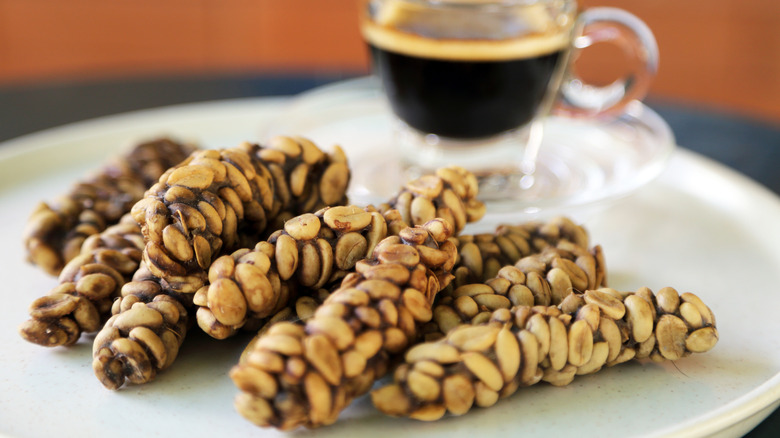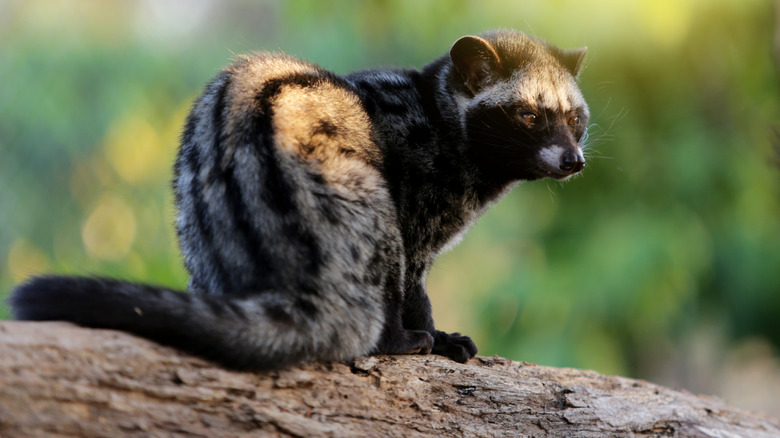Kopi Luwak Proves Even A 'Crappy' Cup Of Coffee Can Taste Good
We may receive a commission on purchases made from links.
Coffee processing techniques result in a wide variety of flavors. Whether your beans are washed, semi-washed, or natural, you'll be able to distinguish qualities of acidity, body, and sweetness. However, there are some more unusual styles of processing, too — like the unique kopi luwak, which involves an animal as part of the method of production.
Kopi luwak consists of coffee cherries eaten by a civet (a small mammal), subsequently defecated, then collected, dried, and roasted. With a route through the gastro-intestinal system of a small mammal, you'd wager that the coffee tastes a bit crappy, rather than assigning it aromatic and floral notes. However, it's actually one of the world's most coveted (and expensive) cups, with a complex flavor of earthy, citrusy, and smooth tasting notes.
Found across South and Southeast Asia, the practice is most strongly intertwined with Indonesia, specifically the island of Java. It arose as an accidental discovery, after Dutch colonizers forbade locals from consuming their own coffee harvest. To work around the unjust prohibition, farmers sampled the coffee beans that had passed through civets, and discovered an unusually aromatic result. And so initiated the strange popularity of kopi luwak, which now sells for steep prices of several hundred dollars a pound.
Civet-poop kopi luwak is a controversial coffee product
Kopi luwak is more than just a curiousity — the coffee's unique flavors are formed by way of the civet. To start, the animal seeks out the most appetizing coffee cherries, which tend to be the ripest and sweetest, thereby leading to a higher quality flavor. Once consumed, the stomach acid further enhances the taste, imparting tangy, citrus notes. Like with natural coffee, where coffee is left out in the sun, fermentation occurs during this time, leading to greater flavor complexity. All this produces recognizable coffee flavor notes, which have led to kopi luwak selling well at coffee auctions. But you don't need to worry about the beans being contaminated with feces, as the outer part of the bean is removed and the inner bean is thoroughly cleaned before roasting.
Unfortunately, the intrigue and high price of this coffee have also caused the exploitation of civets. Although kopi luwak was originally produced with only wild animals, the demand led farmers to cage and force feed coffee to the animals. The conditions of civets in captivity varies wildly, and a diet of predominantly coffee cherries isn't great for their health. The brand Natureland does claim it's only source from wild animals, however, there's not enough regulation to really prove which beans come from wild versus captive civets. As a result, animal rights activists rally against kopi luwak consumption, especially when the producer is unknown. Like the rare coffee that gets spit out by monkeys, it's best to use judgment whether animal involvement is necessary, especially since so many delicious coffee beans don't necessitate such ethical debates.

